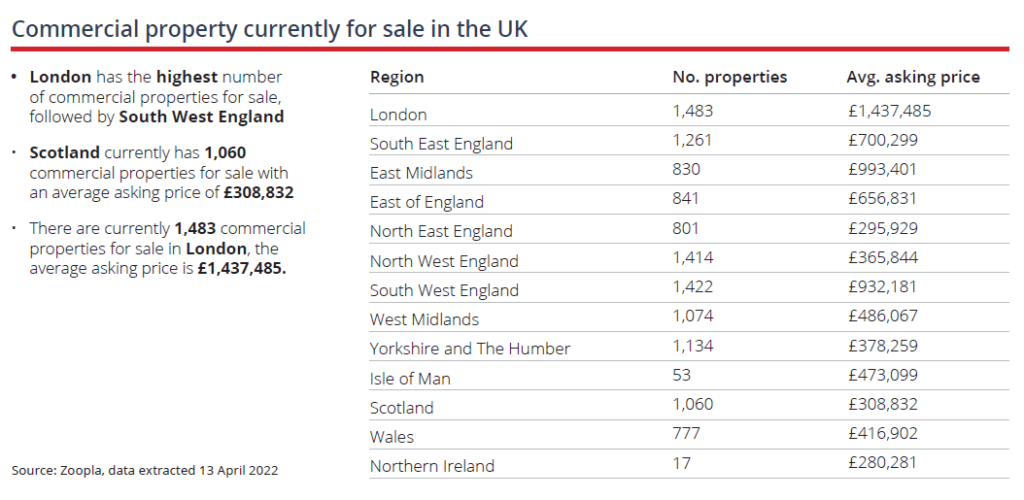Industrial space in high demand in Q1
Elevated occupier demand has driven strong UK industrials
and logistics take-up in Q1 2022, according to the latest research.
The take-up of 10.43 million sq. ft in the first quarter is double
the total in the same period last year, CBRE noted. Q1 2022 saw take-up more
than 36% above the long-term quarterly average, according to Savills.
Such strong demand is keeping supply critically low, Savills
cautioned, with the current vacancy rate sitting at 3.12%. However, its
analysts also pointed to the 21.1 million sq. ft of speculative warehouse space
under construction, due for delivery in 2022 or 2023, as a sign for optimism.
Richard Sullivan of Savills commented, “There are a number
of significant macro events currently impacting economies globally which are once
again placing pressure on businesses to future proof their supply chain. With
some predicting online activity could account for as much as 50% of retail
spend, this is only set to increase demand going forward.”
Optimism returns to Aberdeen office market
Office take-up in Aberdeen has almost reached the total
figure for 2021 in Q1 2022 alone, according to analysis from Knight Frank.
The commercial property consultancy found that 195,905 sq.
ft of office space was transacted in The Granite City between January and March
2022, compared to around 197,194 sq. ft in the same period last year.
Notable deals during the first quarter saw Shell complete on
a 100,000 sq. ft let at the Silver Fin Building and The North Sea Transition
Authority – formerly the Oil and Gas Authority – take up around 18,000 sq. ft at 1 Marischal Square.
Matt Park, Partner at Knight Frank
Aberdeen, said “At the beginning of the year, we expected to exceed
200,000 sq. ft of take-up by the end of June, but we are very close to reaching
that figure in just three months.”
Prime office space still hotly sought after
February take-up in London’s City office sector climbed
to 546,166 sq. ft across 18 deals, according to Savills, larger than the
combined value for January and February 2021.
Prime office space remains a key driver for occupiers, with
94% of the year-to-date 834,221 sq. ft take-up classed as Grade A quality.
Moreover, 69% of this Grade A space was recently comprehensively refurbished or
developed.
A noteworthy transaction was Aviva’s acquisition of the
first to fourth floor at 80 Fenchurch Street, EC3. The insurer acquired 78,276
sq. ft on a ten-year term at £67.50/sq. ft with 27 months rent-free.
In total, the Insurance & Financial Services sector has accounted for 24% of year-to-date take-up, behind only the Professional Services sector (37%).
Serviced offices and tech shine post-pandemic
The post-pandemic office landscape has bolstered two
already established trends; the value of serviced offices and growth in the tech
sector.
The UK’s largest serviced office providers’ property portfolios
have fallen from £25.7bn to £24.3bn in the last year, according to Boodle
Hatfield, reversing the past five years’ relentless 300% growth.
Experts, however, expect big office occupiers to be drawn
back to serviced offices. “The serviced office sector is leaving the
pandemic in a healthy state with a consensus that a hybrid working model will
see the sector continue to grow” commented David Rawlence of Boodle Hatfield.
The tech sector, meanwhile, continues to outperform the
overall economy. Last year, UK tech investment recorded its best year since
2014.
Bristol, ranked third in the UK by Tech Nation’s 2021 report,
provides an interesting case study. The city is gaining a reputation as one of
the UK’s fastest-growing tech cities, with the sector accounting for 30% of
office take-up in the last five years, according to Savills.
With Bristol’s tech sector maturing, deal sizes have already
increased; the average letting is now 6,318 sq. ft, up 41% on 2017’s average. Accordingly,
top rents in the sector have grown by 38% between 2016 and 2021.
It is important to take professional advice before making any
decision relating to your personal finances. Information within this document
is based on our current understanding and can be subject to change without
notice and the accuracy and completeness of the information cannot be
guaranteed. It does not provide individual tailored investment advice and is
for guidance only. Some rules may vary in different parts of the UK. We cannot
assume legal liability for any errors or omissions it might contain. Levels and
bases of, and reliefs from, taxation are those currently applying or proposed
and are subject to change; their value depends on the individual circumstances
of the investor. No part of this document may be reproduced in any manner
without prior permission.











